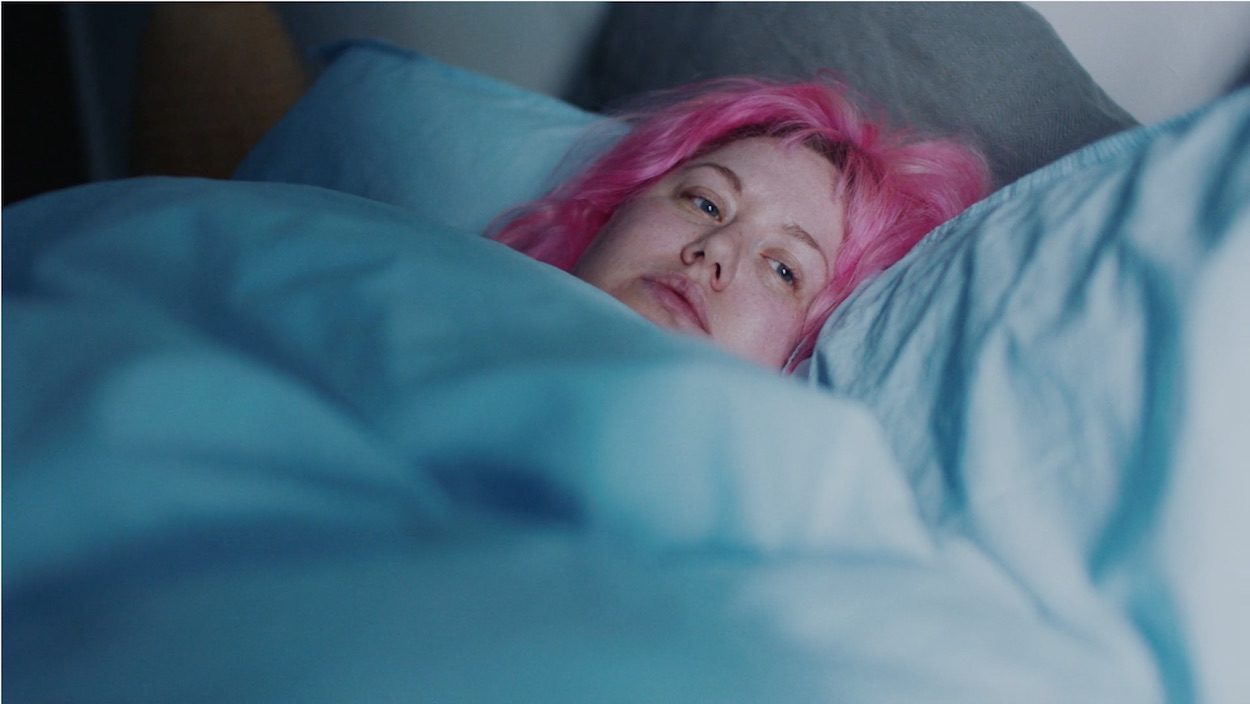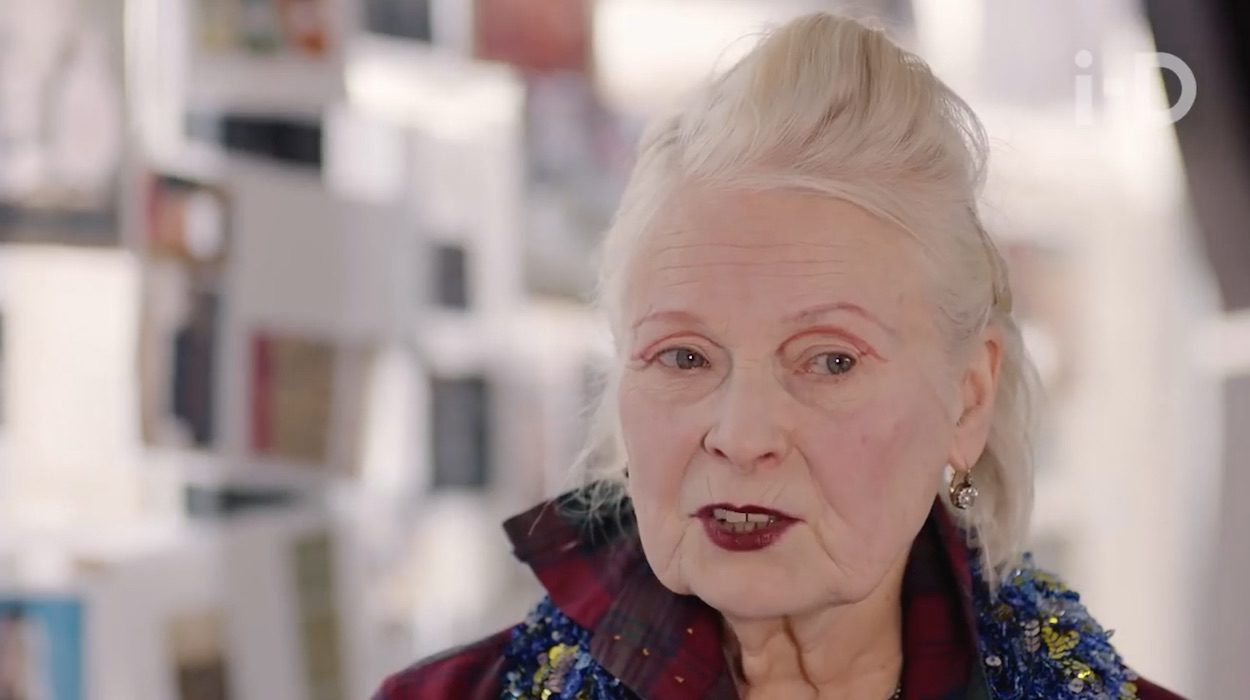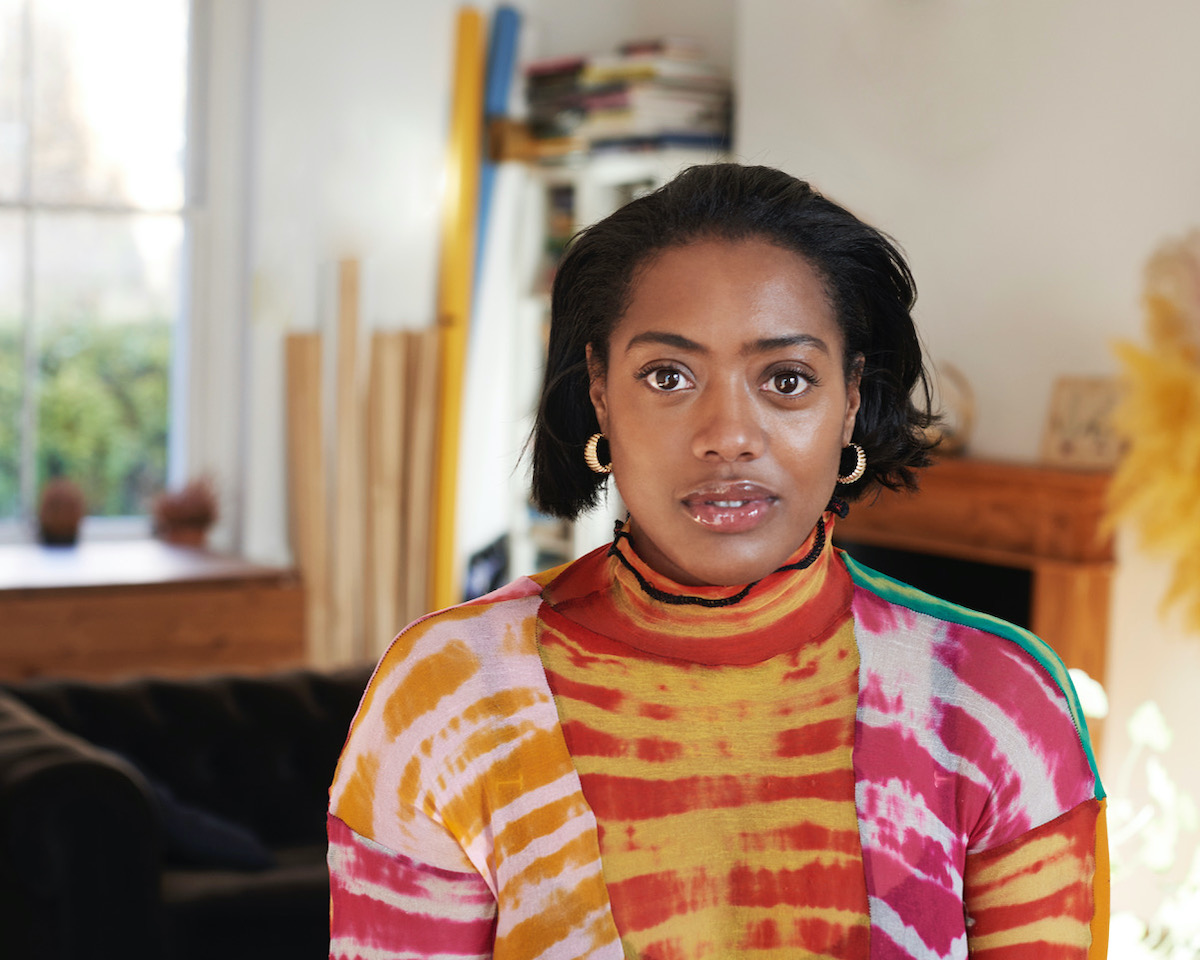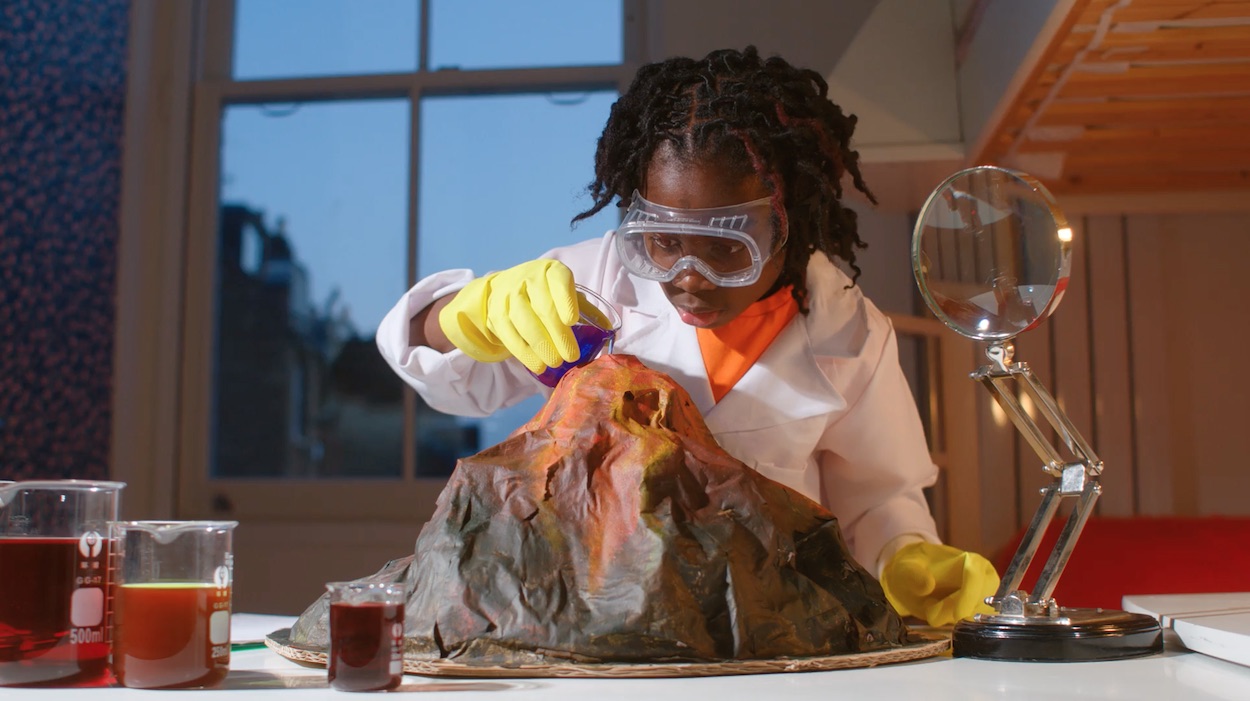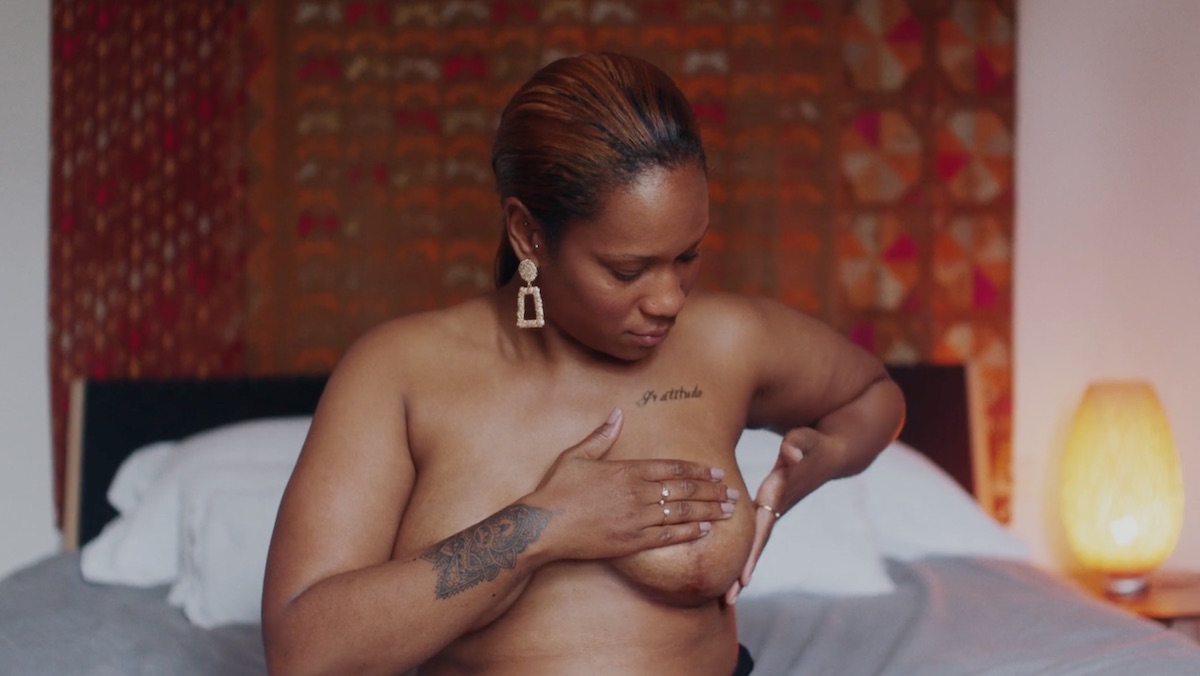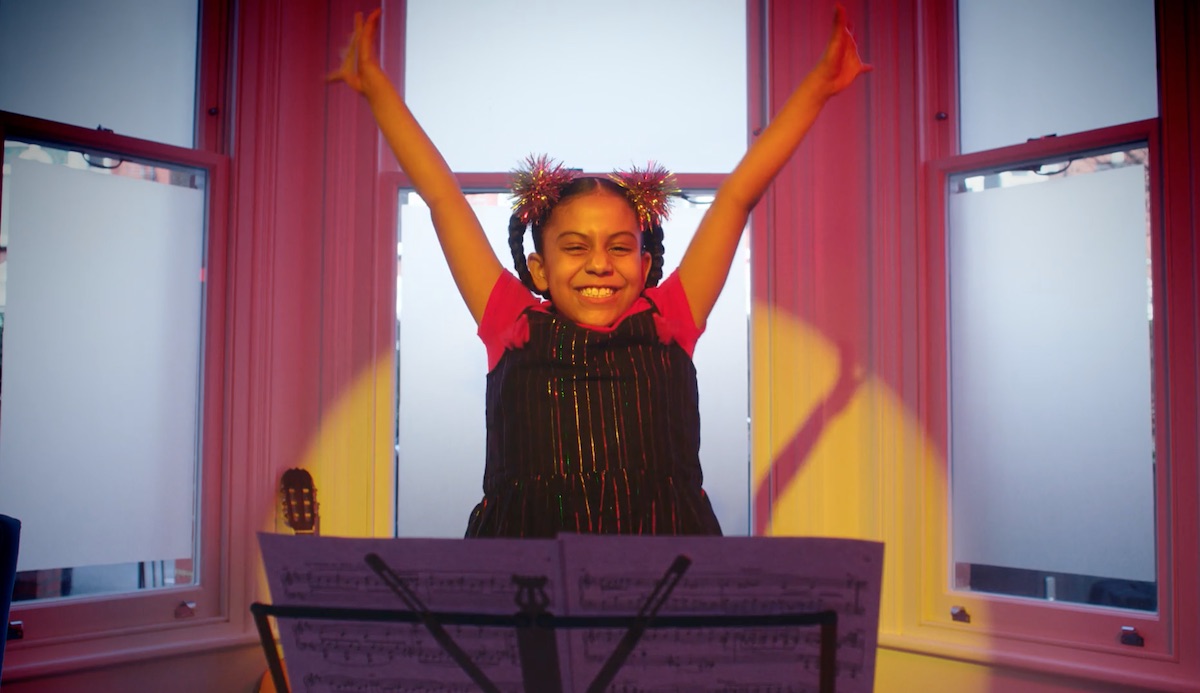Eloise King
What was your childhood like? Were you interested in film from a young age?
I grew up as the only girl in a family of 11 boys – brothers and cousins. I rode a BMX, I had a gymnastics scholarship, and played Peter Pan in the school play. I was a voracious reader, story writer and I directed many Barbie scenarios. Looking back, I was allowed to fearlessly explore my interests. By 14, I was absorbing every documentary I could – Kim Longinotto, Brian Hills ‘Feltham Sings’ stood out – when I gleaned that films offer intimate windows to the world. When I told my teacher, she responded that being a filmmaker was too competitive so I should think of something else…
Milk Honey Bees / Barbie, Raise Your Voice
How has your background in journalism and TV – plus your role as a former global executive producing at VICE and i-D – gone on to inform your approach as a director and the types of projects you’re drawn to?
I am an interdisciplinary filmmaker by virtue of all of the spaces I inhabit and sources of information I am drawn to. I think I am naturally observant or analytical, which lends itself to a dynamic understanding of visual language, story and character. That said, I’m still growing and experimenting with new ways to fuse my influences, surrealism and humour into my work as there’s a danger of being too earnest. I want to make projects that force me to learn something new and provoke creative growth.
You’re dedicated to working with intersectional crews on your films – why is this important to you and how could more directors benefit from having a diverse team of black, people of colour, white and queer and non-binary, men and women?
As filmmakers we build worlds, and my crews reflect the world I live in. A friend said to me recently: “Privilege is inversely proportional to insight. I can see you but you can’t see me.” That chimes with me deeply as a Black queer woman director.
CoppaFeel, Grab Life by the Boobs
Your aesthetic feels authentic and natural, and your spots for CoppaFeel! and Nike Women in particular sing with body confidence: how do you go about creating an atmosphere of authenticity and that allows your cast to relax and be themselves in these types of shoots?
I intuitively tap into people’s energy and rhythms – but it’s an exchange. I’m curious, so I ask lots of questions; being a documentary filmmaker has definitely helped me refine this, but I always want to have enough room to respond to the person in front of me, to make them feel safe enough to show themselves.
Female empowerment and potential is clearly a theme that’s very close to your heart and it’s encapsulated in your latest film for Barbie. What was the brief and how closely did you work with Clara Amfo and London grassroots organisation Milk HoneyBees to bring the concept to life?
The brief was to create a piece marking Clara’s appointment as a Barbie role model and raise awareness of Milk HoneyBees’ core mission; to empower Black girls. It made me think about Breonna Taylor, Shukri Abdi and the response to Meghan Thee Stallion being shot, as well as the way 7-year-old Wynta-Amor [Rogers] at a [Black Lives Matter] protest in Merrick went viral. What would it look like for Black girls to be uplifted and protected in society?
Right away, I envisaged a playful, DIY, Charlie’s Angels style call-and-response film that put the girls’ POV at the heart of the film – starting with Black sisterhood as Ebineheta invites Clara to work together with her on the mission. The film explores how confidence is expressed in a variety of ways. There is a tendency towards the adultification of Black girls and it’s deadly. Black girls aren’t adults, they shouldn’t have to fight against their own oppression or be strong all the time. The greatest gift we can give the next generation is a limitless space to imagine, play and heal, to be themselves – and Clara’s central narration offers this from the heart.
Milk Honey Bees / Barbie, Raise Your Voice
And what are your favourite aspects of the finished film?
I love that it’s honest. This is a commercial I would have liked to have seen growing up. Watching Iris, Riley-Ann, Kennedy and Bailey and Adduni come into their own: play instruments, paint, dance, direct and experiment while encouraging in whatever makes them happy. Seeing how proud they are of themselves and how it will make other Black girls feel is everything – it’s positively good for the soul.
As a director whose work examines institutional and cultural turning-points and the tensions of ‘progress’, how have the events of the past year – the Black Lives Matter movement and the exposure of institutional racism; the Sarah Everard case, violence against women and rape culture in schools – affected your worldview and sparked inspiration for stories you want to tell?
Reflecting on my body of work in the past 10 years, whether it’s been the Nike ad, a documentary about kids incarcerated as adults in the US, commissioning films about Sisters Uncut and Yarls Wood protests, fashion profiles or scrutinizing female stigmas for Gurls Talk with Adwoa Aboah – and now my film – my work has made so many comments on the tensions of ‘progress’.
I’ve addressed institutional and structural racism, cultural turning-points, the Black liberation movement and gender violence against women, employing various forms, formats and mediums and making sure those stories centring marginalised perspectives are seen and heard. Personally, I don’t make work to prove anyone else wrong, or speak truth to power or prove anyone’s humanity – I am proof enough. I am inspired by people and want to create authentic complex experiences with them, to reflect people as they see themselves and elevate it – evoking empathy through film.
What are you working on at the moment?
I’m currently in production on my debut feature documentary supported by Field of Vision, BFI/Doc Society, Firelight Media and Wellcome Trust, and I am developing a fiction feature.
Interview by Selena Schleh
PRETTYBIRD UK website


